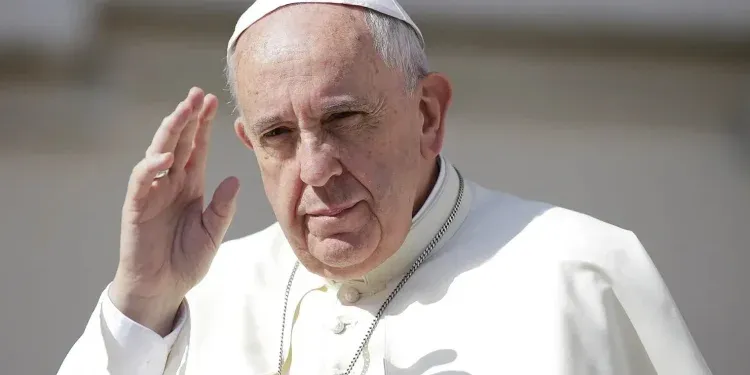Vatican City – Pope Francis, the first pontiff from the Americas and a transformative figure in the Roman Catholic Church, has died at the age of 88. The Vatican confirmed his death on Monday morning.
In a solemn video address, Cardinal Kevin Farrell shared the news: “Dearest brothers and sisters, with deep sorrow I must announce the death of our Holy Father Francis.” He continued, “At 7:35 this morning, the Bishop of Rome, Francis, returned to the house of the Father. His entire life was dedicated to the service of the Lord and of His Church.”
Francis passed away at his residence in Casa Santa Marta, within Vatican City. He had been battling multiple respiratory illnesses, including pneumonia, for several months. He was initially admitted to the Agostino Gemelli Polyclinic Hospital in February 2025 and spent 38 days undergoing treatment before returning home.
The Vatican announced that Pope Francis will be laid to rest at the Basilica of St. Mary Major in Rome, a place he frequently visited and held dear.
A Papacy of Firsts
Born Jorge Mario Bergoglio on December 17, 1936, in Buenos Aires, Argentina, Francis made history in 2013 by becoming the 266th pope — and the first from Latin America, the first Jesuit, and the first non-European pontiff in over 1,200 years. His election followed the unprecedented resignation of Pope Benedict XVI.
Francis’ humble origins — as the son of Italian immigrants and a former janitor and nightclub bouncer — informed his focus on social justice, inclusion, and humility. He was ordained a Jesuit priest in 1969 and went on to lead the Jesuits in Argentina and Uruguay by the age of 36. Appointed a bishop in 1992 and later archbishop of Buenos Aires, he became a cardinal in 2001 under Pope John Paul II.
Leadership in a Divided Church
Pope Francis’ tenure was marked by efforts to bridge ideological divides within the global Catholic Church. He repeatedly emphasised mercy, compassion, and inclusion over rigid doctrine, often stirring both praise and controversy.
In 2021, amid growing political-religious tensions, he pushed back against U.S. bishops’ efforts to deny communion to President Joe Biden over his stance on abortion. Francis made it clear he opposed such exclusions, stating, “Communion is not a prize for the perfect.”
Yet, he remained consistent in the Church’s position on abortion, calling it “homicide” and asserting, “Whoever has an abortion kills.”
Francis also made historic moves to open the Church to LGBTQ+ Catholics. In August 2023, while returning from Portugal, he declared that the Church must be open to all, exclaiming “Todos, todos, todos!” (Everyone, everyone, everyone!) during a public event.
In December 2023, he approved blessings for same-sex couples, a major shift from previous Vatican policy. While he distinguished these blessings from marriage, he urged clergy to welcome all individuals seeking God’s love without applying an “exhaustive moral analysis.”
Champion of Women and Lay Participation
Pope Francis also worked to elevate the role of women in the Church. In April 2023, he announced that women would be given voting rights at the upcoming Synod of Bishops — a historic first. The decision also extended influence to laypeople, a step toward greater democratization within Vatican structures.
Francis appointed numerous women to leadership positions in the Roman Curia, the Church’s administrative body, and consistently called for expanding women’s voices in Church decision-making.
Persistent Health Struggles
Throughout his pontificate, Pope Francis faced multiple health issues. In his youth, he had part of a lung removed due to a severe respiratory infection, a condition the Vatican downplayed during his papacy.
His health became a growing concern in recent years. In July 2021, he underwent colon surgery for diverticular stenosis. In 2023, he was twice hospitalized: first for bronchitis in March and again for hernia repair surgery in June.
In his typical light-hearted fashion, Francis dismissed health rumours during his 2023 hospital stay, joking to reporters, “I’m still alive.”
However, in February 2025, his condition worsened when he developed pneumonia in both lungs, coupled with fungal, viral, and bacterial infections. Despite initial improvement, his health deteriorated over the following weeks, leading to his death on April 21, 2025.
Conclave to Elect a New Pope
With the death of Pope Francis, the Catholic Church now turns to the sacred tradition of conclave. The College of Cardinals — the body responsible for electing a new pope — will soon convene in Vatican City. The process remains secretive and steeped in centuries-old rituals, as cardinals discern who will lead the Church through its next chapter.
Francis leaves behind a mixed yet undeniable legacy of reform, marked by efforts to modernize the Church, uplift the marginalized, and emphasise God’s mercy above all. His inclusive message and pastoral approach altered the global perception of Catholic leadership.
As Cardinal Farrell said in his announcement, “With immense gratitude for his example as a true disciple of the Lord Jesus, we commend the soul of Pope Francis to the infinite merciful love of the Triune God.”







